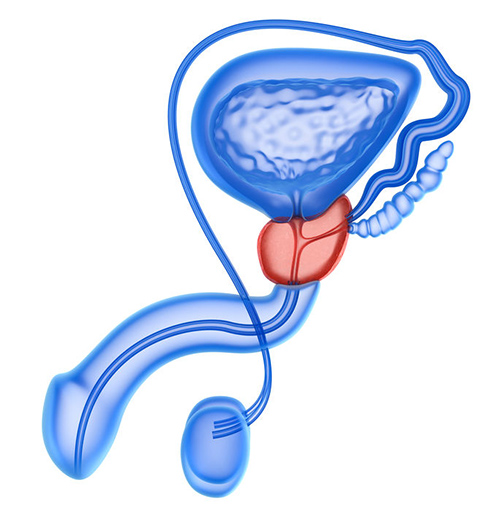BPH - Enlarged Prostate Treatment in St. George, UT
Urology Associates

Beginning at about age 40, hormonal changes cause the number of cells in a manís prostate to increase causing the prostate to grow and constrict the urine tube that runs through its center. An enlarged prostate, also known as benign prostatic hyperplasia or BPH, is not cancerous, but over time it can cause bothersome urinary symptoms.
Symptoms
The symptoms of an enlarged prostate may be mild or come and go, and as a result, most men wait several months, even years, before seeing a doctor. In general, waiting to see a physician does not pose a problem.
- A weak urine stream
- Trouble starting the flow of urine
- Starting and stopping again when urinating
- Not emptying your bladder completely
- Urinating more often, especially at night
- Sudden urges to urinate
- Leaking or dribbling after you urinate
- Straining to urinate
Comprehensive Urology
Services for Men & Women
Treatments
Treatment is available when the symptoms of an enlarged prostate are affecting your quality of life or are so severe that they put you at risk for serious complications like urinary tract infections or bladder or kidney damage.
Treatments include:
- UroLift: Minimally invasive approach that lifts or holds the enlarged prostate tissue out of the way so it no longer blocks the urethra.
- Rezum: Minimally invasive water-vapor therapy that shrinks the prostate without the need for medications or invasive surgery.
- Medications: There are two types of medications. Your doctor may prescribe one or both.
- Alpha Blockers relax the prostate muscles and bladder neck to improve urine flow. These medications start working almost immediately.
- 5-Alpha-Reductase Inhibitors block the hormone that causes your prostate to grow. They help relieve symptoms by shrinking your prostate over time.
- Nonsurgical Procedures: These include treatments that use heat to destroy extra prostate tissue. They shrink your prostate and help open up your urethra.
- Surgical Procedures: These treatments remove the enlarged part of your prostate to make it smaller. The most common surgery to treat surgery is called a transurethral resection of the prostate (TURP) in which the urologist removes the excess tissue surrounding your urethra with a traditional surgical instrument or a laser.
We are proud of our commitment to health care and preventive care in St. George, UT! Using only the most current techniques and technologies. At Urology Associates we've grown a reputable practice built on excellence. Schedule an appointment today for more information about our services!

